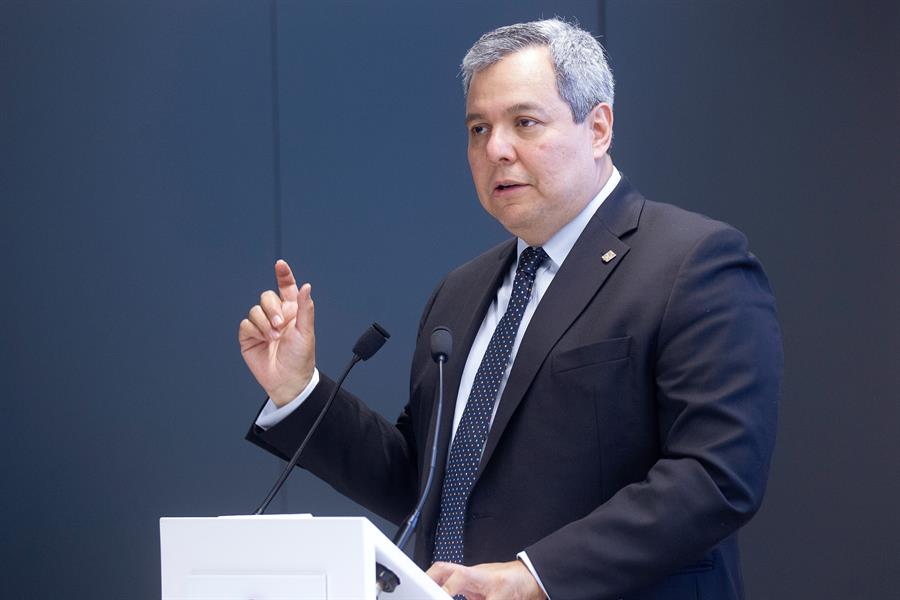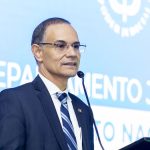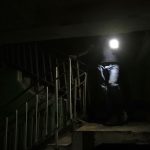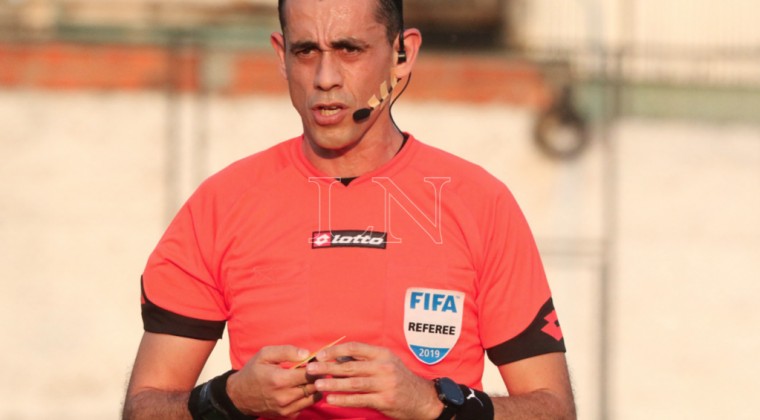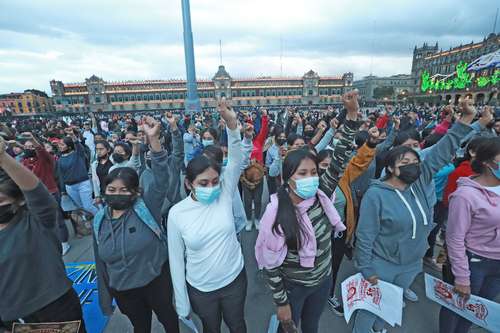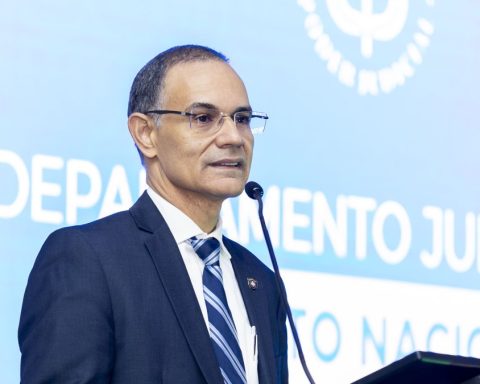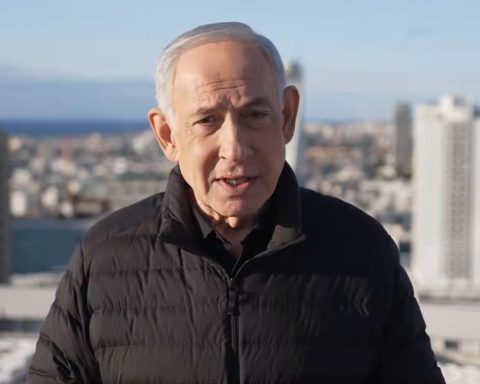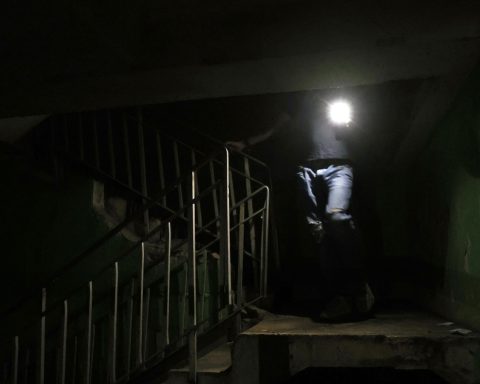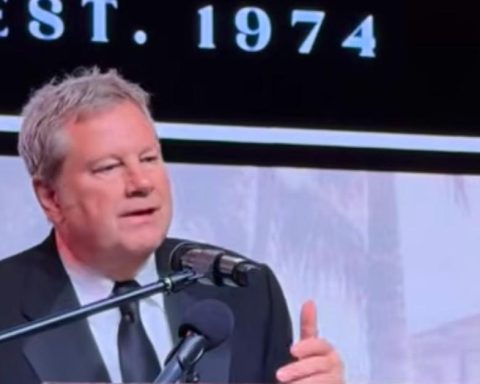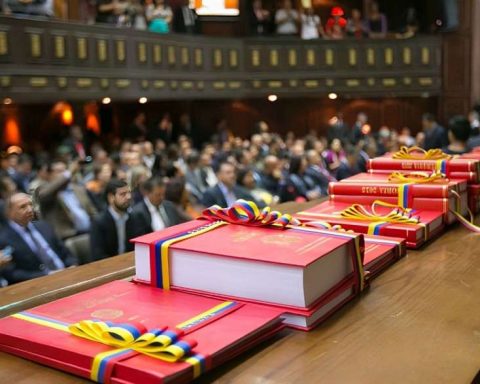The executive president of the Central American Bank for Economic Integration (CABEI), Dante Mossi, denied that the decision of the Assembly of Governors, meeting in Mérida, Yucatán (Mexico), last week, to reject the bank’s capitalizationhas been a vote of no confidence against him, assuring that the plan was only postponed, waiting to be discussed in the future.
When the Assembly heard the report “there was a lot of debate: the countries asked what is the strategy? Where is this new money going to come from, and what are we going to use it for? These are questions that anyone who is asked to contribute more capital would ask. The resolution of the General Assembly, which seemed quite constructive to me… decided to express its interest in capitalizing the Bank, and asked us for more information, and to come back with a proposal that would respond to these additional requirements that the partners made of us”, said the banker.
Their admission coincides with what they told CONFIDENTIAL two sources who know closely what happens inside the Bank, explaining that upon learning the details, several countries objected because the proposal was so incomplete that it was considered “not very serious” and even “shameful.”
Mossi hoped that the member countries would accept his proposal to increase the Bank’s capitalization, which at the moment is (nominally, because not all the countries have finished paying their quotas), 7 billion dollars, and move it to 10 billion, which would allow expanding the amounts available to approve new credits.
If the partner countries had approved the capitalization, this would have improved -and consolidated- the entity’s risk rating, established at double A.
Mossi distorted the expressions of those who point out that, given the rejection of his proposal, he should choose an honorable way out and resign, responding that “everyone has the right to an opinion, but mine is not that.”
No more money for Nicaragua
The sources consulted assure that saying “no” to Mossi is a way of preventing the regime of Daniel Ortega and Rosario Murillo from obtaining more funds from CABEI, because ‘the greater the capitalization, the more access to resources.’ The executive president of the Bank said that at this time, the founding countries have access to 600 million dollars a year, but if the capitalization is increased, the amount would be 1,000 million per year per country.
Aware of this, “Nicaragua advanced a capital payment [para avanzar en completar su cuota de la octava capitalización decidida en 2020, que hará que el Banco pase de 5000 millones, a 7000 millones]cast increases availability in your favor”, he explained.
Although as a banker, Mossi expected to be able to manage an entity whose capitalization amounted to 10 billion dollars, “to be a much larger and much stronger bank”, there were partners – most of them, both Central American and from other regions – who They were not convinced with that proposal.
Admitting that there were doubts on the part of the founding partners (in reference to the Central American countries, which are the ones that use most of these resources), the executive acknowledged that there are other countries “such as Korea, Taiwan, Spain, that they are clearly donor countries, and they have other questions”.
“I am happy with the result? I expected approval of this proposal, but they asked us for more information, and to return to the Assembly again, which could be within a year, although it could also be earlier, in an extraordinary meeting “if we complete the reports they have requested” ., to seek expansion in the coming months.
In the end, he decided to see the positive side, declaring that “we are happy that there is interest and willingness to capitalize this bank to increase the level of support” that allows covering the needs of the countries. For now, what follows is to complete the information requested by the governors, “to seek the expansion in the coming months.”
New projects for Nicaragua
Right now, “Nicaragua has the largest portfolio in Central Americaand it continues to be executed very well”, but “there are no new investments for this year”, said the banker, detailing that the last operation approved and in execution, was the 200 million dollars that the country received (same as the rest of the isthmus), to attend to the emergency expense represented by the rise in fuel prices.
In this regard, he pointed out that there have been no new approvals for Nicaragua, except for the loan to widen and improve highways, detailing that he hopes to inaugurate the longest bridge in the country, which is being built in the Nicaraguan Mosquitia. “Having advanced the capitalization payment increased the availability of resources for the country” to build bridges, highways, drinking water systems, or clean up Lake Managua. “Nicaragua’s portfolio is the largest in terms of the number of projects”, he reiterated.
Additionally, “we are initiating work to explore a renovation project for the port of Bluefields, but we would seek to finance this, perhaps under the trust modality. We do not know yet. This is a financial instrument that would not generate public debt for Nicaragua, and would allow it to develop its port in the Caribbean”, although that would no longer be for this year.
consulted by CONFIDENTIALMossi explained that this mechanism allows infrastructure to be financed with non-sovereign elements, that is, they would not have to be backed by the Treasury of the Republic, because the certainty of their payment is based on the expectation of future profits from the project.
“Being a port, it generates a future flow that can serve as a guarantee for a loan to build that work,” he said, revealing that the Bank financed a geothermal generation plant in Costa Rica, using a leasing scheme. “The Bank is flexible enough to adapt to market conditions”, which allows financing, without increasing the indebtedness of the countries, he added.
